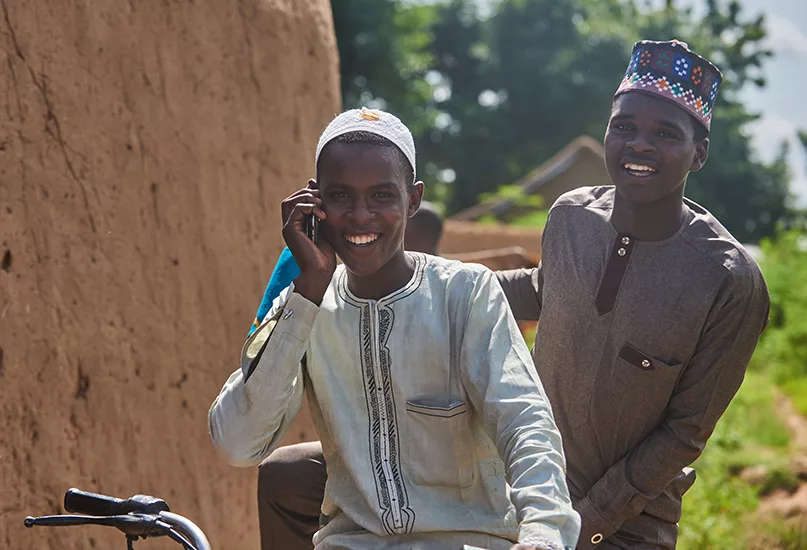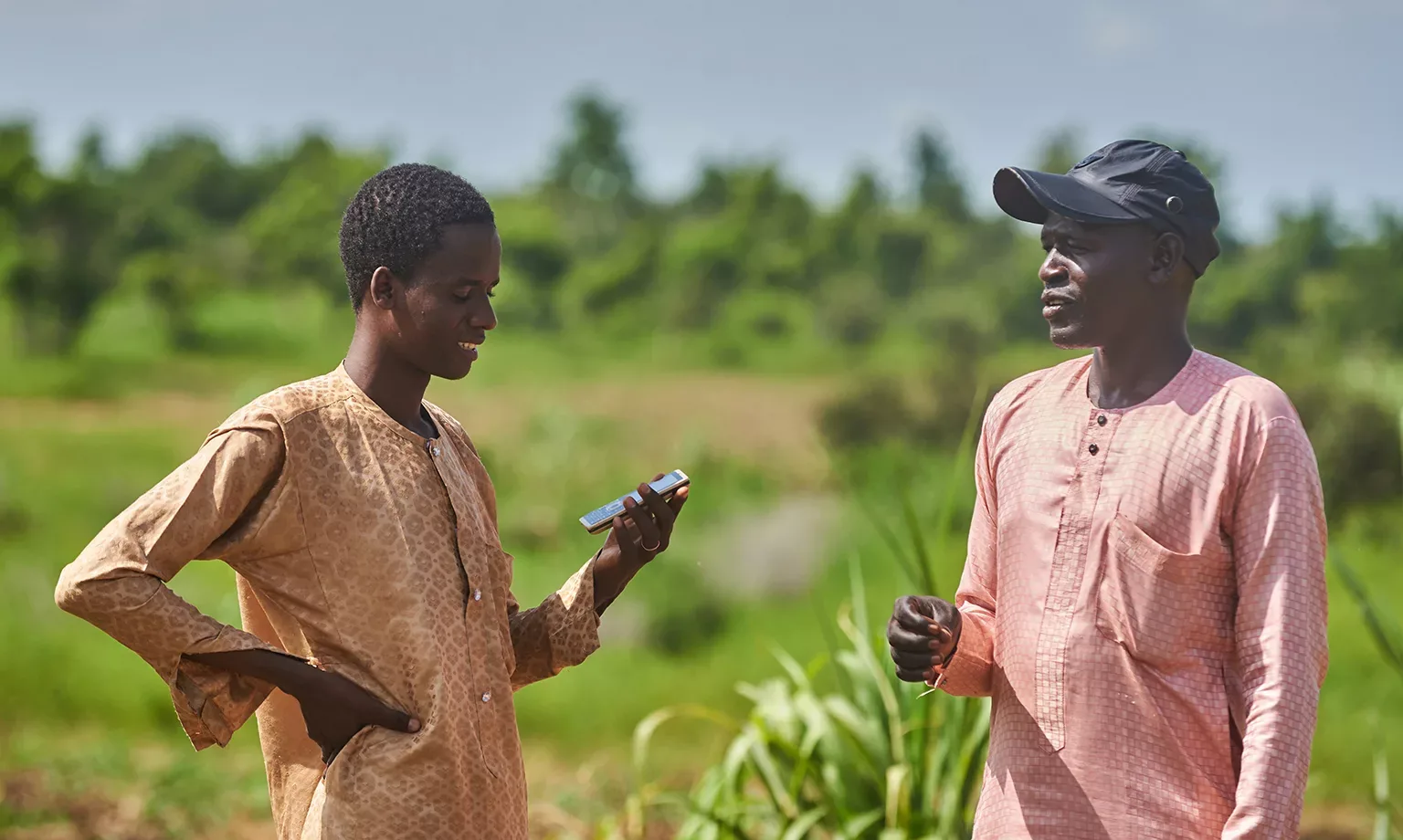Kyle Whitehill, CEO of Avanti Communications, speaks to us about the journey to becoming a global multi-orbit provider of fully integrated connectivity services and solutions.
EXPANDING TO MULTI-ORBIT
As a global multi-orbit provider of fully integrated connectivity services and solutions, Avanti Communications (Avanti) was founded over two decades ago with the mission of helping those across the world become better connected.
Leveraging satellite technology to create custom solutions that protect communities and unlock opportunities for individuals, businesses, and governments all over the world, Avanti is proud to be a global business known for its ability to deliver reliable, high-performance solutions even in the most challenging locations.
Kyle Whitehill, CEO, joined Avanti in April 2018 and has since led the company’s growth strategy, expanding its global footprint even wider. Both in orbit and on the ground, Avanti has built a set of assets in order to deliver rural backhaul and provide mission-critical satellite capacity for its communication industry partners.
By using its scale and expertise to connect hard-to-reach rural areas, improving communities’ access to education, and helping to create a safe environment for people to thrive, Avanti has become the leading Ka-band high-throughput satellite capacity partner to the communications industry in Europe, the Middle East, and Africa (EMEA).
Ultimately, Avanti is leading the industry when it comes to providing customer-centric services and solutions, offering choice and flexibility for a diverse range of needs, while delivering high-performance solutions on a global scale.
Q&A WITH KYLE WHITEHILL, CEO, AVANTI COMMUNICATIONS
Firstly, please introduce us to Avanti as a world-leading provider of agile, secure, and pioneering satellite technology.
Kyle Whitehill, CEO (KW): Avanti was founded in 2002, and we currently operate a fleet of four satellites and a network of seven gateway earth stations. We’re a global company and have seven offices across EMEA, three of which are in Africa as it’s such an important market for us.
We are a multi-orbit provider, which means we use various forms of satellite technology to provide connectivity services all over the world. These range from large satellites in geostationary orbit, which follow the direction of the Earth’s rotation, and small low-Earth orbit satellites, which operate closer to the planet and cover a smaller surface area.
Our mission is to help the world become better connected, even for those living in the most challenging, hard-to-reach, rural communities. We believe everyone should be able to benefit from a connected life, so we’re focused on helping to close the digital divide. In particular, we’re using our scale and expertise to improve access to education and create a safer environment for people to live and work through reliable and cost-effective connectivity.
Can you tell us more about your on-the-ground presence in Africa?
KW: We have significantly grown our presence in Africa over the past six years as it represents a big growth opportunity for us. More than 70 percent of our satellite coverage extends over the continent, and Africa represents 75 percent of our total investment (around USD$800 million), so we are very serious about putting strong roots down.
I have lived and worked in Ghana and South Africa and know that each country has both unique challenges and opportunities. A ‘one-size-fits-all’ approach simply does not apply in Africa, which is where many other global companies go wrong. For us, we need teams in our key markets to fully understand the specific needs and requirements of that country.
We opened our first African office in South Africa in 2018, and we have recently moved to new, state-of-the-art offices in Nigeria and Kenya. Now, we are focused on creating more local employment opportunities and growing our presence across Africa.
As a satellite technology company, can you provide some key details about your mission to help connect Africa?
KW: Africa is an incredibly important market for us as the digital divide is still so stark, especially in sub-Saharan Africa. While life without access to the internet is unthinkable for many of us, it is a reality for the 64 percent of Africa’s population who do not have broadband access. Although access to mobile internet has increased, the reach and quality of services still lag behind much of the rest of the world.
Digitalisation can open the door to many opportunities, especially in education and employment, yet too few people can access its benefits. Approximately 230 million jobs in sub-Saharan Africa will require some level of digital skills by 2030, yet the region has the lowest literacy rate in the world. A huge 90 percent of children leave school without learning any basic digital skills, which limits much of what they can do in today’s connected world.
We want to change that reality, which is why providing access to education is a key strategic pillar of ours. To date, we’ve supported the education of more than 180,000 children in Kenya, and we’ve been supporting the Global Partnership for Education (GPE) to raise awareness of, and facilitate access to, quality education for young people around the world.

What about the 1,000 villages and schools Avanti has connected across Africa to date?
KW: We are proud of the progress we have started to make in connecting rural Africa, but this is just the tip of the iceberg and there is much more work to be done.
One of the biggest challenges when connecting rural areas is the lack of infrastructure and terrestrial networks. The traditional methods of connectivity, such as telecommunications towers, take a long time to build and often require a level of infrastructure that rural areas simply cannot support.
It is also very costly, as transmission costs for traditional terrestrial systems can vary based on the distance from a tower, so connecting individuals living in rural and ultra-rural areas can be expensive. Satellite technology has a significant role to play in the cost-effective roll-out of connectivity in these areas as it does not require traditional infrastructure or need to be close to a tower.
How will your plans to connect a further 10,000 sites over the next five years enable even more communities to benefit from a connected life?
KW: We have developed a solution that integrates the networks of local mobile network operators to help extend the reach of their coverage using our satellite technology. This means we can provide high-performance and cost-effective 2G, 3G, and 4G connectivity to hard-to-reach areas that are otherwise impossible or challenging to access using traditional infrastructure.
The connectivity we roll out provides critical access to healthcare, financial services, e-commerce, and education – improving quality of life and economic prospects.
In terms of a recent innovative project, can you tell us about your new multi-orbit business strategy?
KW: The satellite industry has grown rapidly over the past few years, and multi-orbit satellite connectivity has taken centre stage. This is exciting, as it’s given customers more choice and flexibility, but has also driven complexity. There are now so many choices at people’s fingertips; it’s hard to know which technology solution is best.
This is why our multi-orbit strategy is based on a “customer pull” versus “technology push” model, whereby we are led by the needs of our customers. This means our satellite technology solutions are bespoke and suited to the requirements of the individual customer, which sets us apart from the rest of the industry.
How will this multi-orbit business strategy help Avanti grow and deliver on its ambitions to connect the region?
KW: Instead of building or buying satellites, we are taking a distinctive route by prioritising cost-effective capacity acquisition. In doing so, we don’t need to push a square peg into a round hole; we can provide customers with optimal capacity solutions and integrate them into comprehensive services, setting us apart in the evolving satellite landscape.































